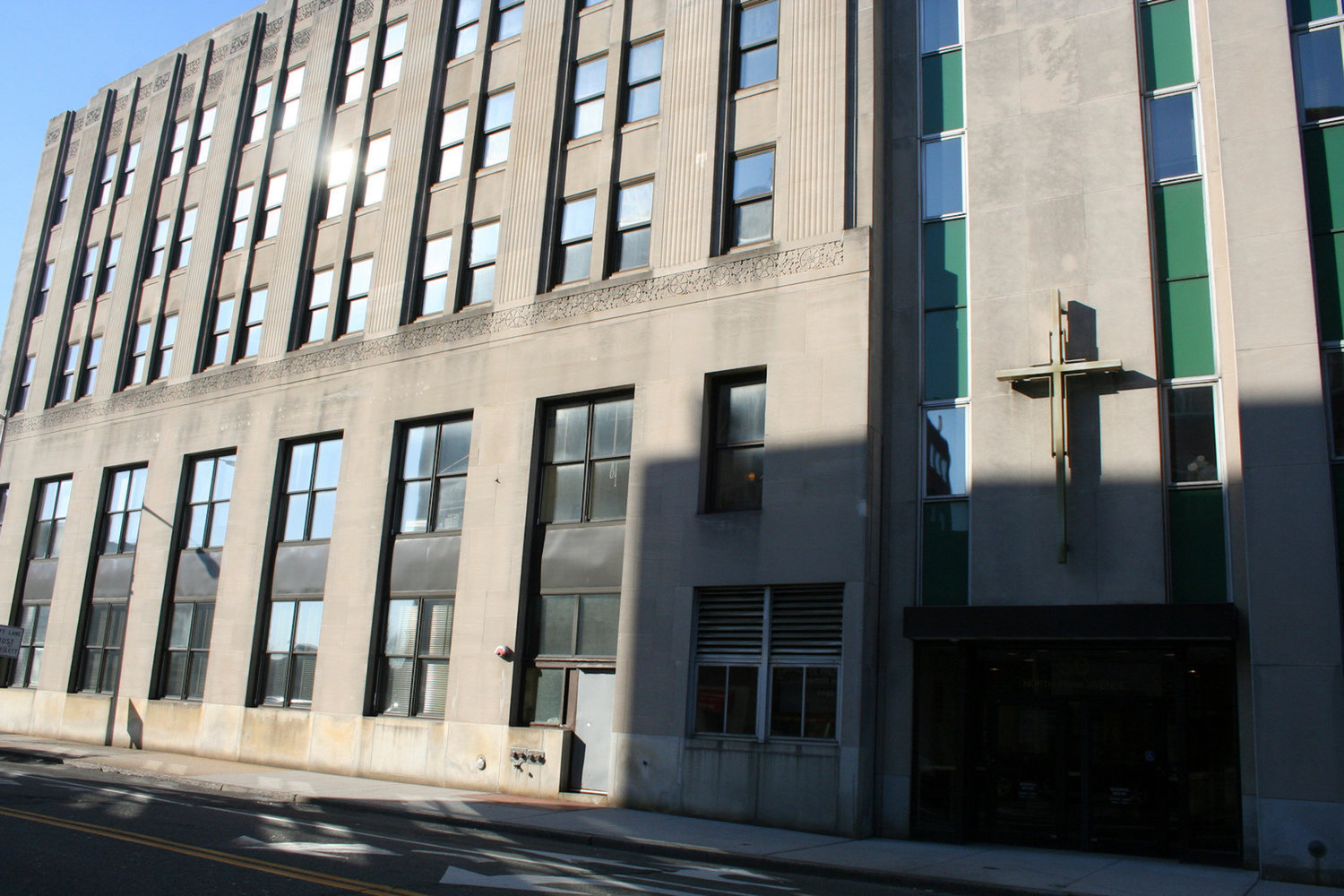Project at former Diocese of Rockville Centre building facing PILOT problems
The Town of Hempstead Industrial Development Agency has delayed a vote on a payment-in-lieu-of-taxes — or PILOT — proposal for the upcoming project at the former Diocese of Rockville Centre headquarters, after Village Attorney Tom Levin pointed out inconsistencies with the proposal at a Feb. 22 hearing.
Levin told the IDA board that there were issues with the proposed PILOT plan. When the diocese owned the building, it was tax-exempt because it was a nonprofit. The building was sold a year ago, however, and should have been returned to the tax rolls, but wasn’t, Levin explained, so the PILOT proposal was assessed based on the property’s paying no taxes.
“The proposal is for a 20-year PILOT, which is standard,” Levin told the Herald after the hearing. “The whole formula was wrong because they started with incorrect assumptions.”
Philips International Holding Corp., a Great Neck-based real estate company, is planning to transform the property into 60,000 square feet of office space, as part of a $19 million project. But in addition to the issues with the PILOT assessment, Levin said, the village has also heard from “various sources” that Philips intends to build some medical offices, which would technically make the project a retail property that would not qualify for IDA benefits. And the area is not zoned for medical offices, Levin added.
The addition of medical offices would create parking issues as well, because they require one space for every 150 square feet of office space, which the property does not have, while standard offices require one spot for every 200 square feet, according to village code.
Under the proposal, Philips would have paid about $300,000 in the first year and more than $800,000 by Year 20. Rock 50 LLC, an affiliate of Philips International, was granted preliminary approval by the IDA for more than $2.6 million in tax benefits in January, but they will not be formally authorized until the review is complete, and they were granted before the issues with the proposal surfaced. As part of that, Rock 50 was slated to receive more than $2.1 million in property tax discounts over 20 years, and nearly $500,000 in other tax exemptions.
“We made two points at the hearing,” Levin said. “One was that it was unclear from the proposals what the intended use of the building was going to be, and the PILOT was proposed based on the county’s assessed value of the properties, but not the village’s.”
But Fred Parola, the IDA’s executive director, said he had been told that Philips did not plan to build medical offices at the site, and noted that the IDA was looking into the issues with the PILOT assessment.
“We’re looking into it because we were told the taxes were zero because it was a not-for-profit,” Parola said. “However, we learned at the hearing that the property was sold a year ago, so it means it should be on the tax rolls, so the existing PILOT may very well not stand.”
Parola did not have a timeline for when a new PILOT proposal might be presented or when a vote would be held. He added that another hearing might be necessary if there were radical changes to the proposal. He also could not say how much the property would generate in taxes if a PILOT were not granted, because it would have to be reassessed.
The building, at 50 N. Park Ave., was used as the diocese’s Pastoral Center, or chancery, and was sold by the diocese after it filed for bankruptcy amid more than 200 lawsuits from victims of alleged sexual abuse. Synergy Holding Partners LLC purchased it during the bankruptcy proceedings. Rock 50 bought the building for $9.5 million.
The acquisition included the five-story office building at the corner of North Park and Sunrise Highway and the adjacent parking lot, which holds about 58 cars. A bankruptcy court approved the sale of the center, and all proceeds are to be used by the diocese to compensate creditors.
Calls to Philips International requesting comment had not been returned at press time.
The diocese began offering the Pastoral Center for sale in 2018, after determining that the property was no longer cost-effective. At the time of the sale, the diocese was not using all of the building’s available space. Philips, a developer and landlord that manages more than 250 buildings across the country, plans to renovate the building before businesses move in, but does not yet have tenants. The lobby, lower level and five upper floors will be renovated, and some of the building’s systems will be replaced.
With the proposal in limbo, it is uncertain how much money the village and school district would collect if a PILOT were approved. Board of Education President John O’Shea told the Herald last month that the PILOT would not benefit the district as much as having a developer paying taxes would, but it would be more lucrative for the district than the previous use.
“It was a non-taxable property,” O’Shea said, “so although we could benefit, with a non-tax-based property, now that it becomes tax-based, we’re getting much less than we should be entitled to — but it’s more than we would have had before.”






